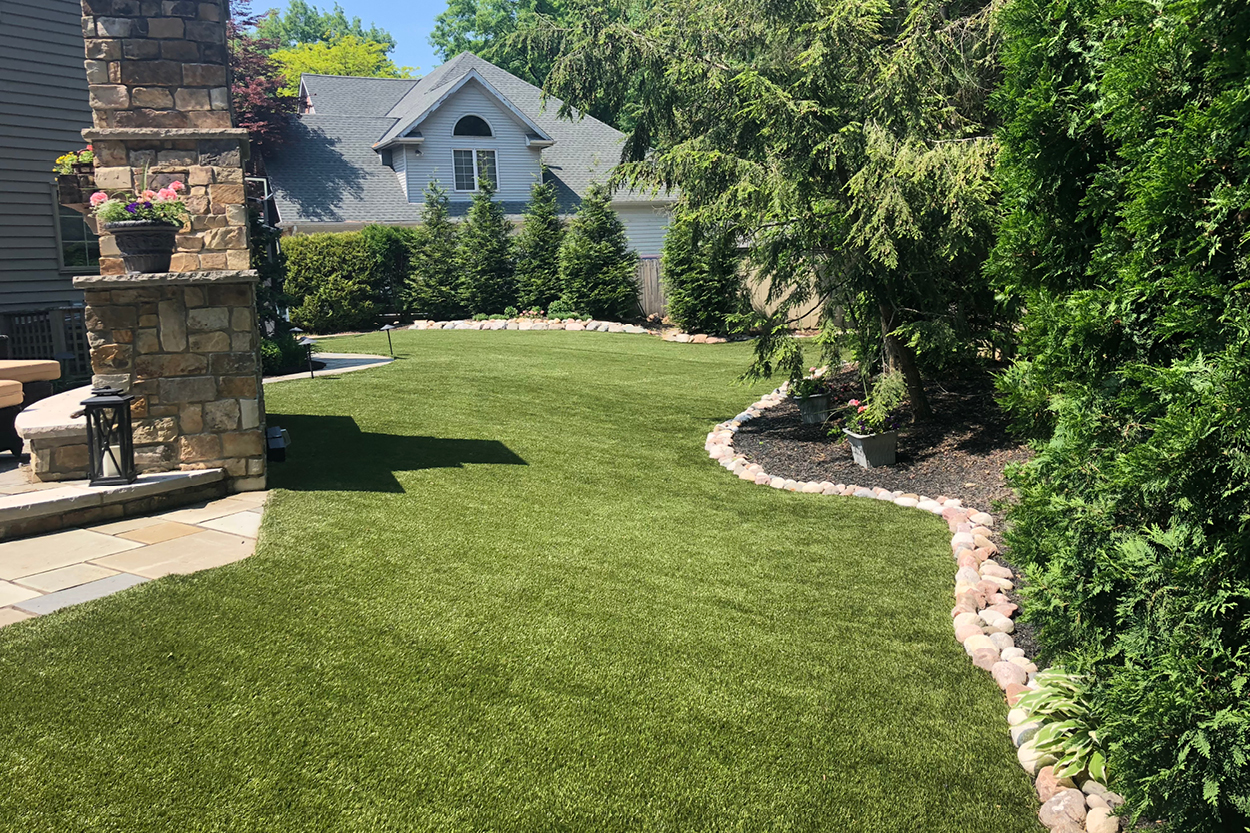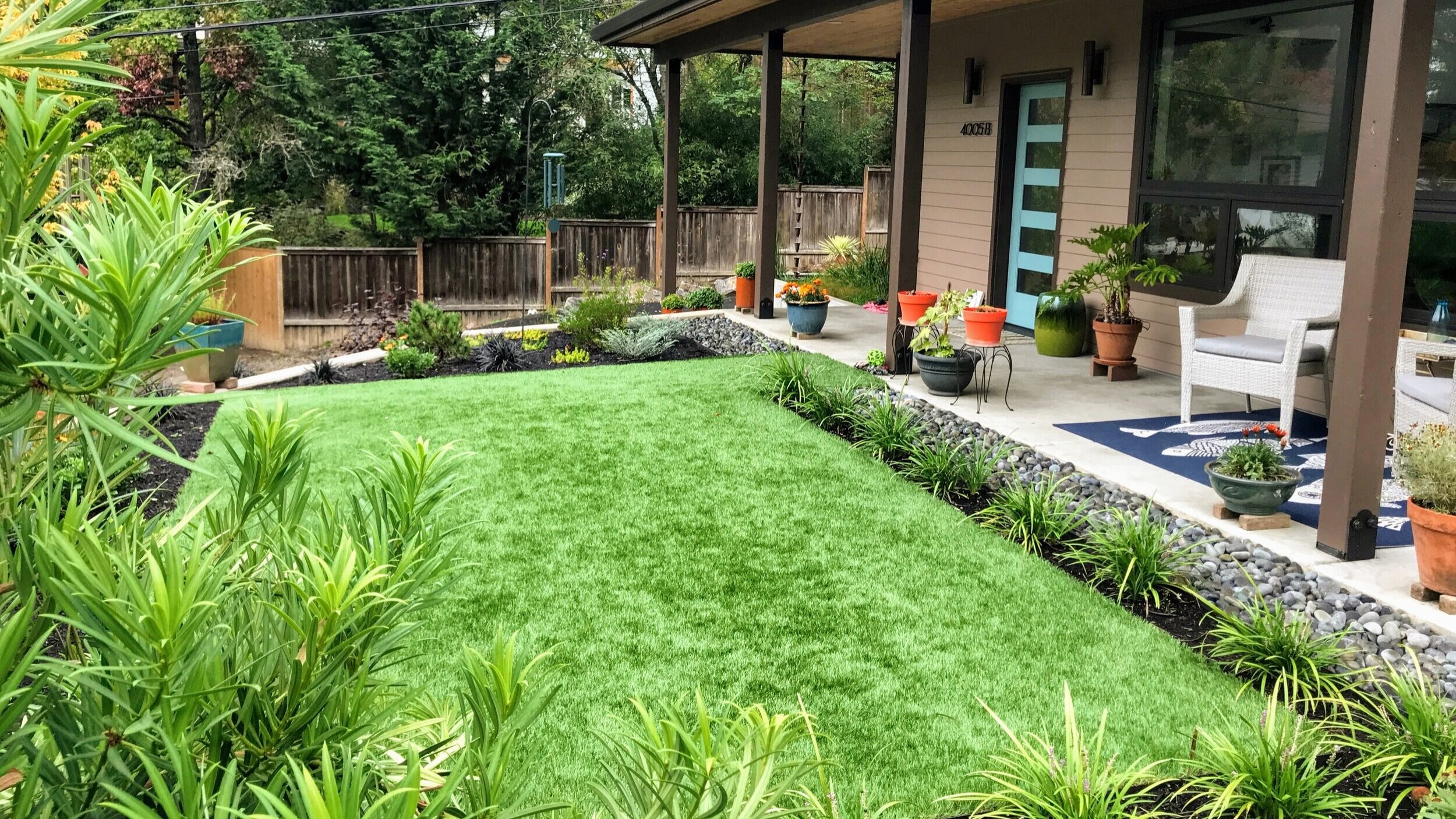Transform Your Outdoor Space with Arizona Artificial Turf for a Lush Green Look
Transform Your Outdoor Space with Arizona Artificial Turf for a Lush Green Look
Blog Article
Explore the Environmental Advantages of Opting for Artificial Lawn Solutions
The adoption of synthetic grass services offers a compelling chance to attend to pushing ecological difficulties. By significantly lowering water use and minimizing the application of damaging chemicals, these options not only promote lasting landscape design but additionally safeguard local communities. Additionally, the reduced carbon footprint associated with reduced maintenance activities adds to a more sustainable strategy to land management. The implications of these benefits expand past simple preservation initiatives, increasing concerns regarding their long-lasting impact on environment preservation and total environmental equilibrium. Discovering these measurements exposes a complicated interplay worth taking into consideration.
Water Preservation Perks
One of the most considerable benefits of fabricated grass is its capacity to preserve water. In contrast, artificial lawn does not require watering, dramatically decreasing the total demand for water resources.
By removing the need for normal watering, synthetic grass adds to lasting landscape methods and assists alleviate the ecological effect of too much water consumption. The preservation of water extends to the reduction of overflow, which can lead to soil erosion and river pollution.
Additionally, the installation of synthetic grass permits towns and property owners to allot water sources a lot more efficiently, concentrating on important uses such as drinking water and farming. The change in the direction of synthetic grass not only advertises responsible water use but also aligns with broader environmental goals targeted at preserving natural deposits.
As areas significantly focus on sustainability, the water preservation advantages of synthetic grass provide an engaging instance for its fostering in property and industrial landscape design jobs.
Decreased Chemical Use
The shift to synthetic grass considerably lowers the dependence on chemical therapies typically made use of in all-natural turf maintenance. Traditional turf administration normally entails the application of plant foods, chemicals, and herbicides to promote development and control parasites. These chemicals can present risks to human wellness, neighborhood wildlife, and the setting, adding to dirt and water contamination.
In contrast, synthetic grass eliminates the requirement for these harmful compounds. By lessening the release of synthetic substances right into the ecological community, artificial grass promotes healthier soil and water systems.
Additionally, the lack of chemical drainage associated with synthetic grass installments helps safeguard regional waterways from pollution, supporting water life and keeping biodiversity. Arizona turf. As areas increasingly prioritize lasting methods, choosing synthetic grass presents a viable solution that straightens with environmental conservation objectives. Via this change, homeowner can appreciate rich green areas without jeopardizing ecological health, leading the way for a more lasting future
Lower Carbon Impact

Additionally, the installment of synthetic grass can result in significant water conservation. Natural yards call for considerable amounts of water for watering, which not only includes to the carbon impact associated with water extraction and therapy but also stress regional water sources. On the other hand, synthetic grass needs marginal upkeep, calling for her latest blog no watering, thus dramatically reducing water usage and its connected energy expenses.
Additionally, the long life of synthetic grass adds to its lower carbon impact. With a life expectancy of as much as 15 years or more, the requirement for constant replacements is lessened, causing less waste and lower energy consumption in manufacturing and taking care of conventional lawn options. Generally, synthetic grass presents a sustainable alternative for eco conscious landscaping.
Habitat Conservation
Environment conservation is an important factor to consider in the discussion over landscaping selections, specifically when comparing fabricated grass to natural grass. All-natural turf yards commonly need substantial maintenance, consisting of making use of herbicides, pesticides, and fertilizers, which can adversely influence regional ecosystems. These chemicals can seep into the soil and rivers, hurting indigenous plants and animals and interfering with regional environments.
In contrast, synthetic grass provides a possibility to minimize the eco-friendly impact of landscaping. By deciding for artificial turf, house owners can decrease the disruption of all-natural habitats linked with conventional yard treatment methods. Fabricated turf removes the demand for hazardous chemicals, consequently securing nearby wildlife and preserving the stability of surrounding environments. In addition, the installation of synthetic grass can bring about the conversion of former turf areas right into even more biodiverse landscapes, such as pollinator yards or indigenous plant areas, which can sustain local wildlife.
Inevitably, the change to synthetic grass not only saves water and decreases maintenance initiatives however likewise promotes a much more harmonious partnership between human activities and the natural environment, advertising environment conservation at the same time.
Long-Term Sustainability
Long-lasting sustainability is a critical consider reviewing the benefits of synthetic turf over typical turf lawns. Among the most significant benefits of synthetic turf is its durability; it can last approximately 15-20 years with very little maintenance, whereas all-natural turf calls for regular reseeding and substitute. This longevity lowers the requirement for consistent sources, such as water, plant foods, and pesticides, which are crucial for preserving a healthy and balanced yard yard.
Additionally, fabricated turf contributes to a decrease in carbon emissions connected with lawn care equipment. Conventional yards frequently call for gas-powered mowers, leaners, and blowers, all of which contribute to air contamination. Turf installation phoenix az. In comparison, artificial grass removes the requirement for such equipment, promoting a cleaner setting
Moreover, the production of artificial grass progressively utilizes recycled products, enhancing its sustainability profile. As makers take on eco-friendly practices, the environmental impact of synthetic grass remains to lessen.

Final Thought
The fostering of fabricated turf services provides considerable ecological benefits, including considerable water preservation, minimized dependence on harmful chemicals, and a lower carbon footprint. Man-made lawn help in protecting all-natural environments by lessening land disruption and promoting long-lasting sustainability with the use of durable products. Collectively, these factors emphasize the possibility of synthetic grass to contribute positively to ecological health and wellness and supply a other feasible option to standard landscape design techniques in a progressively resource-conscious world.
In comparison, man-made turf does not require watering, significantly lowering the general demand for water sources. By decreasing the launch of synthetic substances into the ecological community, synthetic turf promotes healthier soil and water systems.
Additionally, the setup of artificial grass can result in significant water conservation. In contrast, artificial grass needs very little upkeep, calling for no watering, consequently significantly minimizing water use and its connected energy prices.

Report this page